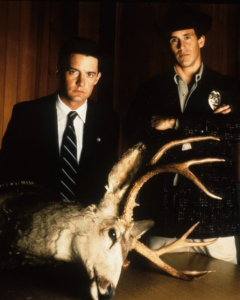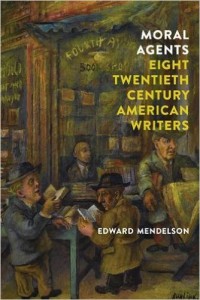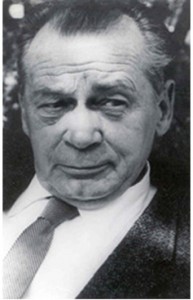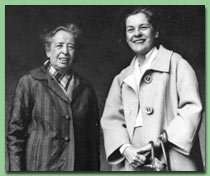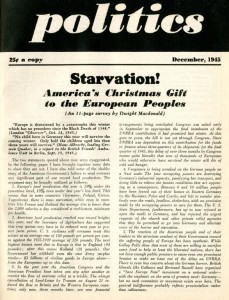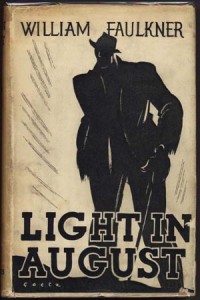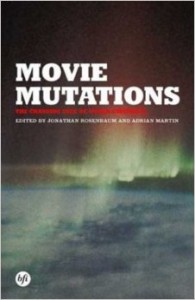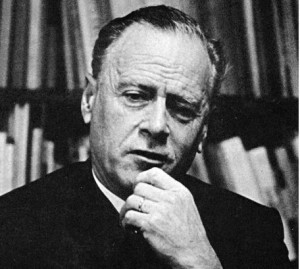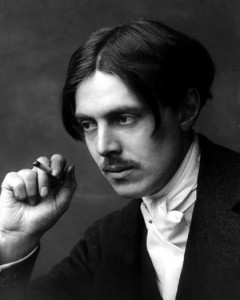Written for Volume 34, Number 3, Issue No 135 of the Winnipeg-based Canadian arts journal Border Crossings in Fall 2015 (see below). — J.R.
I’m frequently troubled these days by the growing absence of global perspectives in what passes for news and other forms of mainstream discourse in the U.S. — the perpetually shrinking definitions of what we mean by ‘we’. A good many of the congealed stereotypes of foreign cultures that crop up in both Hollywood blockbusters and Internet chatter — ranging from the notion that ‘the French’ are crazy about Jerry Lewis to the pop images we still have of Latinos, Italians, Russians, Arabs, and Asians in SF blockbusters whenever ‘the world’ has to be represented — can paradoxically be traced back to the 50s and 60s, when the Cold War and all of its most rigid either/or assumptions were still in force. One might suppose that the combined resources of the Internet and digital viewing would widen our cinematic and other cultural reference points rather than shrink them. But the tendency of even respectable, adult media pundits to speak about ‘good guys’ and ‘bad guys’ in the world at large suggests a metaphysics tailored to the dimensions of a Star Wars saga or a video game, where the cultural givens plunge back even further into the mythical past: Flash Gordon serials and Triumph of the Will from the mid-1930s, Roy Rogers Westerns and airborne World War 2 epics of the mid-1940s.
Clearly part of this problem is the habit of superimposing outworn paradigms on the newer realities that we haven’t yet figured out how to cope with. In his bimonthly column for the Spanish film magazine Caimán Cuadernos de Cine, after noting the nostalgic uses of ‘old technology’ in David Lynch’s Twin Peaks and Christopher Nolan’s more recent Interstellar, Adrian Martin notes that ‘We see this remediation happening all the time. Our computer poses as a literary “desktop” for an “office” where, often, no physical desk or office exists. Digital artists still talk about making “videos” for YouTube, even though there is no longer any videotape in sight. For thirty years now, music groups have strenuously mimed their tracks using real saxophones – even when their sound is fully synthesized. And directors like Lynch and Nolan keep wanting to fill their movies with old microphones, books and watches – so that the looming banks of new technology will not alienate the audience.’
If the historian Eric Hobsbawm’s overall suspicion that the movement from the nineteenth century to the twentieth (and beyond) is some sort of descent from civilization into barbarism, one has to factor in the painful truth that imperialism and colonialism are important parts of what made that sort of civilization possible, just as, within a much smaller frame of reference, the Cold War gave international culture a certain spread that appears to have been steadily shrinking in its aftermath.
***
Both the title and the jacket of Edward Mendelson’s Moral Agents: Eight Twentieth-Century American Writers (New York Review Books, 2015) leave us with a deceptively stale impression of the 205 pages lurking inside. The cover illustration — an undated canvas by the Ukrainian-born Futurist David Burliuk (1882-1967) called A Bookstore — shows us four European-looking men at a musty place calling itself the Fourth Avenue Bookshop, three of them outside and wearing hats (two of them browsing at a stall, one a departing customer), the fourth hatless and presumably a clerk, while the book’s title even more directly evokes a bygone era — not only the mid-20th century, but, alas, the very notion of ‘moral agency’.
What’s deceptive about all this is that Mendelson is writing from a contemporary perspective, and telling us things about his eight writers, all deceased, that were unknown and unavailable to most of us when they were alive, accessible now via letters and journals. Most of these things relate to their private lives and thus to what we might ordinarily term as gossip, yet ‘gossip’ seems an inadequate label for Mendelson’s investigative tools, which are too historically oriented and too seriously formulated to qualify as scandal mongering. His mission is to re-evaluate these writers, including what might be termed their ‘inner’ lives, from a certain distance, and delving into their sexual and social behaviors and self-images helps him to round out his portraits.
Thus we learn, for example, that Lionel Trilling, who adopted the role of academic guru during his lifetime, actually detested that role, that Norman Mailer’s public persona as a super-macho ladies man was privately inflected by his adulterous relationships with unglamourous middle-aged women., and that W. H. Auden (who, incidentally, named Mendelson his literary executor after meeting him only briefly) committed many selfless and anonymous acts of generosity.
As the chapter headings put it, these figures are ‘Sage: Lionel Trilling’, ‘Moralist: Dwight Macdonald’, ‘Outsider: Alfred Kazin’, ‘Magus: William Maxwell’, ‘Patriarch: Saul Bellow’, ‘Mythmaker: Norman Mailer’, ‘Neighbor: W.H. Auden’, and ‘Celebrant: Frank O’Hara’ — all of them associated to varying degrees with the legendary New York Intellectuals of roughly half a century ago. Sometimes this loose assembly is identified as the New York Jewish Intellectuals, although in fact only half of the men selected by Mendelson were Jewish. More common to all of them is a comprehensive vantage point towards the world in which art and an ethically nuanced sociopolitical perspective play equally important roles. Other Jewish and non-Jewish members of this group, anchored in mid-20th-century New York, would include Hannah Arendt, James Baldwin, Ralph Ellison, Paul Goodman, Mary McCarthy, Harold Rosenberg, Susan Sontag, and Edmund Wilson.
Why are the eight writers selected by Mendelson exclusively male? The half-answer that he offers in his Introduction seems to me only half-convincing. He regards this book as a sequel to his earlier The Things That Matter (Random House, 2006), about seven novels from Frankenstein to Between the Acts that are all by women: “The choice of authors in each case has nothing to do with any homogenizing fantasy that women and men have different essential qualities, or that one category is inherently deeper or wiser about one or another aspect of experience.” Moreoever, this book, like the previous one,
has a focus on the inner life and the life of the
political and cultural marketplace. Its subject
matter is the effect of power on both private
and public experience, and it describes a specific
literary culture in which power was available
only to men. Women writer from Katherine
Anne Porter through Mary McCarthy to Sylvia
Plath could be celebrated in their womanly
insights but only if they held back from social
and political subjects reserved for men —
although an anthropologist like Margaret Mead
was tolerated for her knowledge of powerless
cultures far from the American empire. The
same tolerance extended to child psychologists
and other experts in powerlessness. One
recurring episode in this book is the hate-
campaign mounted against Hannah Arendt
after she discredited many conventional pieties
in Eichmann in Jerusalem in 1963, a campaign
that would have been far more cautious had the
book been written by a man.
My principal objection to this argument relates mostly to McCarthy and to the unmentioned Susan Sontag, both of whom wrote about social and political matters during the same decade as Eichmann in Jerusalem. (McCarthy, in fact, was one of that book’s most eloquent and passionate defenders.) Of course, there’s no reason why Mendelson’s agenda has to be the same as mine when he’s describing the New York intellectual climate at mid-century, and the fact that Arendt’s husband Heinrich Blücher (who wasn’t a writer) was my principal intellectual guru during the 60s — along with Kazin, another teacher of mine, as well as Macdonald and Sontag, whom I knew as both writers and speakers — obviously inflects my own slant. But it’s certainly true that Arendt, McCarthy and Sontag were regarded then as token (i.e., exceptional) figures in the New York intellectual firmament in much the same way that James Baldwin, Ralph Ellison, and Leroi Jones were, and also controversial in similar ways.
My reasons for hoping for something somewhat different from Mendelson are partially personal. Full disclosure: I first became acquainted with him in the mid-1970s when he asked to reprint an irate letter of mine in The New Review (London, July 1976), responding to F.S. Schwarzbach’s review of Thomas Pynchon’s Gravity’s Rainbow in the June 1976 issue that he also planned to reprint in Pynchon: A Collection of Critical Essays (Prentice-Hall, 1978). Three years earlier, I’d reviewed Pynchon’s novel for the Village Voice, and some time later, after reading Mendelson’s “Gravity’s Encyclopedia” in Mindful Pleasures: Essays on Thomas Pynchon (Little, Brown and Company, 1976), I concluded that he was by far the most illuminating of that novel’s critics, even though his claims were quite grandiose. Allow me to quote his opening paragraph:
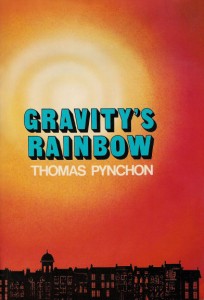
In both its range and, one may predict, its cultural position,
Gravity’s Rainbow recalls only a few books in the Western
tradition. To refer to it as a novel is convenient, but to read
it as a novel — as a narrative of individuals and their social
and psychological relations — is to misconstrue it. Although
the genre that now includes Gravity’s Rainbow is
demonstrably the most important single genre in Western
literature of the Renaissance and after, it has never
previously been identified. Gravity’s Rainbow is an
encyclopedic narrative, and its companions in this most
exclusive of literary categories are Dante’s Commedia,
Rabelais’s five books of Gargantua and Pantagruel,
Cervantes’s Don Quixote, Goethe’s Faust, Melville’s
Moby-Dick, and Joyce’s Ulysses.
I won’t try to summarize the persuasive backup details and argument Mendelson gives to this sweeping assertion, which covers some thirty-odd pages, except to say that his willingness to encompass five languages and over seven centuries while still giving his overall thesis some sociopolitical urgency puts his achievement within some hailing distance of what I still regard as perhaps the single greatest work of literary criticism, Erich Auerbach’s Mimesis (Berne, 1946; English translation, Princeton, 1953) — a book whose initial chapter, ‘Odysseus’ Scar,’ by comparing the styles of Homer and the Old Testament, illuminates some version of what we might call world culture. (‘By [the Western tradition] I mean the Eastern too,’ Jorge Luis Borges remarked in his recently translated Conversations with Osvaldo Ferrari [Seagull, 2014], ‘for what we call Western culture is, simply, one half Greece and the other half Israel.’)
I might seem to be drifting recklessly off-topic here, but actually I’m not. Four pages into ‘Gravity’s Encyclopedia,’ one encounters the following:
Because encyclopedic narratives appear near the beginning
of a culture or a nation’s sense of its own separate existence,
and because Melville [in Moby-Dick] has already fulfilled the
encyclopedic role in North America, Pynchon’s international
scope implies the existence of a new international culture,
created by the technologies of instant communication and
the economy of world markets. Pynchon implies that the
contemporary era has developed the first common
international culture since medieval Latin Europe separated
into the national cultures of the Renaissance. The
distinguishing character of Pynchon’s new internationalism is
its substitution of data for goods. […]
Insofar as Pynchon’s plot concerns the end of World War 2 and Mendelson is writing in the mid-1970s, this is prophetic as well as provocative on several counts, even if Mendelson quickly adds the caveat, ’Pynchon’s implied historical claims are enormous, and, in any sober reader, should inspire a healthy skepticism.’
So it’s quite a leap from the broad embrace of ‘Gravity’s Encyclopedia’ to the reaches — even the thoughtful and sometimes brilliant reaches — of Things That Matter and Moral Agents. And without quite claiming it’s necessarily a leap backwards, I’m still wondering to what extent, and in what way, it can be regarded as a step forward.
***
Clearly one important feature of the mid-20th-century New York intellectuals that seems lamentably less prominent today, and that also seems somewhat obscured in Mendelson’s selection of figures, are the pronounced European ties and tastes. Macdonald’s magazine Politics (1944-1949) got much of its spark from overseas contributors ranging from Albert Camus and Victor Serge to Niccol Tucci and Simone Weil, and Arendt, Blücher, McCarthy, Rosenberg, and Wilson were in large part defined by their Continental tastes (as was Sontag, although in her case this taste seemed at times so exclusively European that it tended to limit the range of her work, at least when it came to literature and cinema). Much of the distinction of the late Tony Judt (1948-2010) as a historian clearly derives from that tradition, and one can safely assume that the shared experiences of World War 2 — and before that, the Depression — must have been largely responsible for that inclination. By contrast, the ‘shared’ Transatlantic experiences of the massacres of 9/11 and Charlie Hebdo are sadly closer to shared cultural alliances than they are to genuine communal responses. Whereas if we think of the Popular Front consciousness that permeated both North America and Europe in the 1930s, it was so universal and taken for granted that even a regional non-joiner like William Faulkner was capable of writing the rough equivalent of a Communist novel in his 1932 Light in August without any particular notice being taken of the fact.
On the other hand, and perhaps for related reasons, Macdonald’s thoughts about ‘midcult’ and his attacks on middlebrow culture on behalf of elitist ‘high’ culture, like the reflections of Clement Greenberg on ‘kitsch’, have arguably outlived much of their practical use value on both continents because of the different cultural models proposed nowadays by niche markets and outlets, which have few of the class trappings implied by Macdonald’s and Greenberg’s terms—an evolution spearheaded by the more egalitarian tastes of Sontag and other Partisan Review writers in the 60s (e.g., Richard Poirier’s celebration of the Beatles).
***
A little over eighteen years ago, I inaugurated a series of letters between myself and four other film critics, all of whom were born around 1960, who came from Australia, (Adrian Martin), the U.S. (Kent Jones), Austria (Alexander Howath), and France (Nicole Brenez), initially published in the French magazine Trafic (along with a final letter from one of its editors, Raymond Bellour) in its Winter 1997 issue, under the title ‘Movie Mutations: Letters From (and to) Some Children of 1960’. I was born in 1943, Bellour in 1939, but the thrust of all six letters was concerned with what I identified as a common taste and sensibility among four exceptional writers and cinephiles whom I had met in my various travels, only two of whom (Jones and Horwath) had met one another at that point — a taste and sensibility that was shared by neither myself nor Bellour. What fascinated me above all was a certain global
synchronicity — a phenomenon based on assumptions which, as another French friend pointed out, were implicitly Jungian, although I didn’t realize this at the time.
These letters were written in three separate languages, two of which had to be translated into French, and were subsequently translated into five others — Croatian, Dutch, English, Italian, and Spanish, sometimes with additional texts being added by younger (or, on one occasion, older) participants. Our project as a whole eventually grew into a book (Movie Mutations: The Changing Face of World Cinephilia, published by the British Film Institute in 2003), coedited by myself and Adrian Martin, with many other participants (of diverse ages) from Argentina, Canada, the Czech Republic, Iran, Ireland, Japan, South Africa, and the U.S., and this has subsequently been translated into editions in Spanish (2010) and Persian (currently in the works). It’s worth adding that the initial letters in our book were sent via snail mail and the last ones circulated via email
I bring all of this up to broach the somewhat utopian notion of global synchronicity that gave rise to this project, related to one example of what I’ve described above as ‘niche markets and outlets’, namely, cinephilia — a project that has also provoked various spinoffs and counter-proposals (such as a negative critique by a German film critic) as well as diverse collaborations between several of the original participants (e.g., Martin’s English translations of many of Brenez’s texts, including her book on Abel Ferrara). Theoretically, one might suppose that the intensity of any globally shared experience — whether it’s cinephilia or World War 2, to cite two radically dissimilar examples — is what makes the recognition of global synchronicity possible. But practically speaking, all sorts of other factors — tribal and territorial reflexes, property rights, diverse cultural histories and legal systems, fashion, censorship, language itself — tend to interfere with this recognition. And it seems lamentable that these interferences often seem more prominent nowadays in intellectual culture than more universally shared experiences.
Broadly speaking, the theory or myth of global synchronicity is predicated on the assumption that there are more common threads of experience in the world at any given moment than we could possibly know about. This becomes an activist principle whenever one tries to follow those threads or, more actively and creatively (and, in come cases, dangerously) tries to spin them.
There are obviously reactionary as well as progressive ways of trying to generate these links by either broadening or contracting our available options in trying to live in the contemporary world. The fact that some of us have too little data while others have too much only begins to describe the challenge. Clearly the wave of reactionary fundamentalism that is currently infecting portions of the planet has something to do with a counter-reaction to the surfeit of data that complicates and confounds many of our choices, desperately seeking a form of simplification and clarity that will cause much of this surfeit to recede. Global capitalism, of course, proceeds to operate according to a similar modus operandi by limiting some of our marketplace choices, meanwhile assuring us, as often as it can, that the only possibilities — or at least the most prominent ones — tend to be the best. Which means, in effect, that not to have a personal agenda in relation to one’s choices usually means having to rationalize the choices that have already been made on one’s behalf.
***
It was in the 1960s that the term ‘global village’, probably coined by Marshall McLuhan, first came into general usage. According to McLuhan’s eldest son Eric (see http://projects.chass.utoronto.ca/mcluhan-studies/v1_iss2/1_2art2.htm), it was initially formulated to describe the effects of radio in the 1920s, but it has been subsequently used in reference to the effects of television and the Internet — though not, interestingly enough, cinema. Probably this is because radio, television, and the Internet are all most commonly experienced at home, whereas cinema in its so-called heyday was experienced in theaters, and even though it’s probably experienced today more at homes than in theaters, it has been clearly bypassed by the Internet as a more universal as well as tribalized form of communication.
Eric McLuhan goes on to say that the concept of the ‘global village’ (if not the term) can probably be traced to either Joyce’s Finnegans Wake (1939) or Wyndham Lewis’s America and Cosmic Man (1948/1949), ‘if it comes from ‘anywhere but [his father’s] own imagination.’ Noting that Lewis was a friend of his father’s in the 1940s and 1950s, he goes on to quote a passage from the second chapter of the latter book:
If you look at North America on the map of the world,
you see a very uniform mass. It is more concentrated
and uniform than any other land mass. You see an
immense area full of people speaking one tongue: not
a checkerboard of ‘united states’ at all but one huge
State. ‘United States’ is today a misnomer. And since
plural sovereignty anyway — now that the earth has
become one big village, with telephones laid on from
one end to the other, and air transport, both speedy
and safe — must be a little farcical, the plurality implied
in that title could be removed as a good example to
the rest of the world, and the U. S. A. become the
American Union.
In one of his last TV interviews, the late Serge Daney (1944-1992), who founded the magazine Trafic shortly before he died, argued that McLuhan’s description of television as a ‘global village’ was still valid -– but only if one placed the emphasis on ‘village’ rather than on ‘global’.
This leads me to conclude that reactionary fundamentalism, global capitalism, and the desires to find and achieve both moral agency and global synchronicity all have different versions of the same metaphysical and spiritual goals in mind. Who has the choices and how these choices are arrived at remains at the center of all our struggles, whether they’re common or disparate. Like it or not, we’re all living in the same village.


